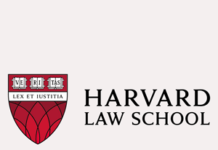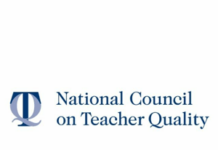 New statistics from the U.S. Department of Education show there were 3,811,079 Black or African American students enrolled in degree-granting institutions of higher education during the 2014-15 academic year. Blacks made up 13.9 percent of all students enrolled in degree-granting institutions.
New statistics from the U.S. Department of Education show there were 3,811,079 Black or African American students enrolled in degree-granting institutions of higher education during the 2014-15 academic year. Blacks made up 13.9 percent of all students enrolled in degree-granting institutions.
Last year the same data report showed there were 3,954,120 Black or African American students who were enrolled in higher education during the 2013-14 academic year. The same report issued two years ago found 4,082,004 African Americans enrolled in higher education. Thus, over the past two years, African American enrollments in higher education have decreased by more than 270,000, or 6.6 percent. The Black percentage of total enrollments has dropped from 14.4 percent to 13.9 percent over the past two years.
In the 2014-15 academic year, Black enrollments in graduate school declined, but only by a slight margin. There were 449,149 Black or African American students enrolled in graduate school in the 2014-15 academic year, compared to 451,257 the previous year. Blacks were 11.8 percent of all graduate enrollments, compared to 11.9 percent the previous year.












This data from the Department of Education should be disturbing to anyone who wants to see improvement in college going rates for African Americans and other people of color. The data, however, does not speak to the reasons why college attendance is down. One can speculate, however, as to some of the factors that are contributing to the decline. There have been other reports that have been published that speaks to the financial challenges that many prospective students face as they consider attending college. I would conjecture that among minority students, the financial challenges are so cost-prohibitive that they decide not to enroll altogether. Institutions should do a better job of communicating to targeted student populations about the availability of financial assistance to offset the costs of attending college. I would hope that counselors at the high school level would also do a better job of encouraging their students to apply and not be deterred by the financial costs of college. The financial costs of college is one of the top three factors that contribute to student attrition, especially among first generation and minority students.
I agree with you. I would like to add, however, that here in California a community college education is free or near free for most students. Unfortunately, there is a negative stigma about students attending a community college and then transferring to a four-year institutions. I have been a financial aid advisor for more than 25 years. Too often when speaking with students and parents about financing a college education, they will not consider a community college to cut cost.
Many school counselors are encouraging students to apply to colleges. However, among first generation college students and lower economic minorities, leaving the family to attend college presents many issues. Among the issues are loss of wages (students who leave to go to college are no longer wage contributors in the home), the financial aid package students receive does not cover the full cost of attending college, and within the lower economic community many of them are reluctant to complete the FAFSA for fear of revealing information. It is difficult to encourage students to apply for college regardless of cost factors, when their parents are telling them they can’t afford it.
I would be interested to know the impact of additional ethic/racial identity categories on applications. How can one know whether the students are not applying at all, or whether they are classifying themselves differently and reducing the numbers?
Interesting point by Ceci on 11/25/16 and is worth looking into.
Higher education is the biggest scam going in the U.S. today. African American students have a 42% 6-year college graduation rate, so most don’t even get the degree that they start out trying to attain. What the majority of African American students do get from higher education is student loan debt that sets them back further had they not attempted college and lived by the saying, “ignorance is bliss”. Of the African Americans who do earn their degree, greater than 50% end up working jobs they don’t require college degrees. I get that this is the JBHE and I’m not going to have a lot of sympathizers, but college just isn’t worth the trouble, unless you major in STEM, which not a lot of African American students do any way. Black students would be better off learning a trade like welding or heating and air conditioning repair than wasting their money becoming college-educated.
David-
I share your sentiment. I am a newly consious black male millennial. America is a capitalist nation, and, unfortunately, so are the colleges and universities. There is a decline of all students attending college, but it may be much steeper for blacks. Even when blacks graduate from college, most of them will end up working as office employees for major corporations and establishments and that will be the end of it. Student loan debt delays future things like homeownership and blacks simply don’t have generational wealth to pass down.
Dr. Boyce Walkins woke me up on this by saying (I’m not quoting him, but merely paraphrasing) that blacks should focus on ownership, not working for others. I mean, all of the information and knowledge you need are available online through Amazon, Google, YouTube, etc; all you need to do is sit down and acquire them. I watched an interview with black investor and billionaire Robert Smith. He revealed that despite his parents having PhDs and middle-class, they were still poorer than white families who had no education, but owned businesses. He said despite his MBA from Columbia, he gained real ideas to start his own corporation Vista Equity Partners, through networking, experience, and interning. Robert Smith is also a voracious reader. This all lead me to believe that real wealth is made through ownership.
But, I understand the spirit for entrepreneurialism and ownership is not in everyone. Which comes down to this, blacks should strive to develop a skill-set that the economy needs, but requires less education to achieve and be an expert at it. Or, be multi-skilled. I use the stem-cell analogy; a stem-cell can morph into any type of cell in the body, fat cells, muscle cells, nerve cells, skin cells, etc. So, what’s wrong with being a teacher and an EMT? Instead of having all of your eggs in one basket, you can morph yourself into any type of worker, because you have the skill for it. I advise black student who do want to go to college to avoid low tier private and public state-universites (especially private universities) and strive for renowed instutions or HBCUs to really compete.
Josh-
I subscribe to Dr. Watkins as well. The colleges with the highest rate of college graduation within 6 years for blacks are the most prestigious schools in the country and the most prestigious HBCU’s. So, I’m in full agreement with you about the colleges. After all, if your going to attend college, you may as well attend one that has a high graduation rate for students like yourself. People who want to become doctors, lawyers, dentists, engineers, etc.. must go to college. But when you really think about it, how many black people even shoot for those occupations and their majors any way. That’s why I just think black folk are by in large ill-suited for higher education. Booker T. Washington’s way of thinking is more conducive to black success than Dubois’ way of thinking.
David-
I partially agree with you on the Dubois’ philosophy. The black community do need “The Talented Ten,” public intellectuals, and yes, white collared workers, but we also need manual skilled laborers, as well. In the future, there will be a demand for trade jobs in all sectors once the baby boomers retire. Many of these trade jobs pay solid, middle-class wages w/ all of the benefits. These careers pay well enough to raise a family in.
I agree with you on Bookers T’s philosophy. Somehow, we’ve made it shameful to work with the hands instead of the mind and that stigma needs to change in our community. We can’t have a lopsided community, where we have an army of college educated people, but no skill men and women. There needs to be an equilibrium.
I have enjoyed reading the dialogue between David and Josh.